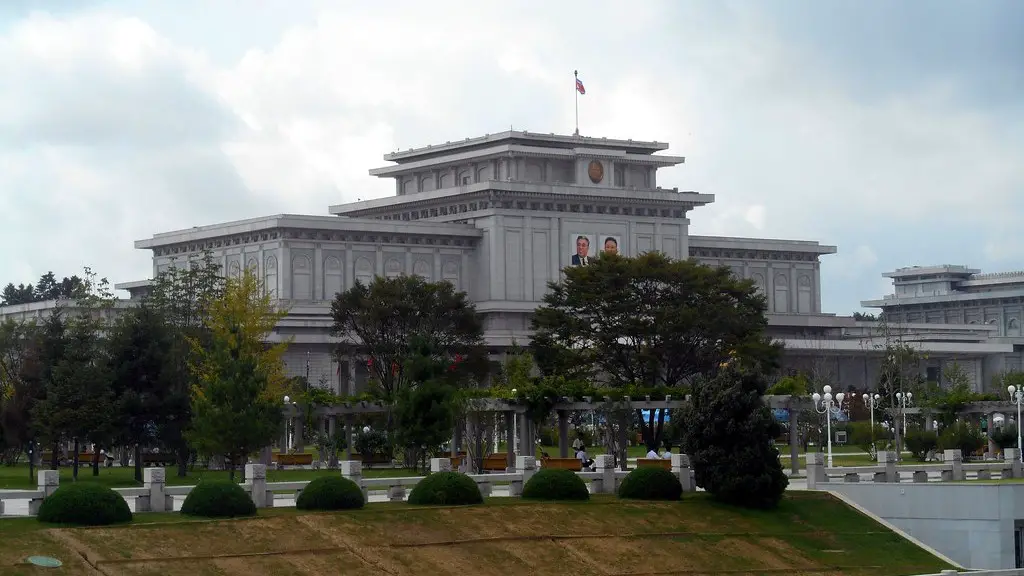Military Strength
North Korea is one of the most hermetic countries in the world, with a long history of secrecy and restricted access. Many people are concerned about the country’s capability to threaten the international community due to its nuclear arsenal, military strength, and cyber capabilities. It is understandable why North Korea is considered a threat, however the reality is that North Korea does not realistically constitute a direct threat to the world at large.
The North Korean Armed Forces are vast in number but weak in technological sophistication and capability. According to the Stockholm International Peace Research Institute, North Korea has 1.2 million active personnel and almost 8 million reserve personnel. This makes it one of the largest militaries on the planet. The vast majority of its equipment, however, is outdated and substandard. In comparison with South Korea, its strategic rival, North Korea’s budget is much lower, estimated at around a fifth of South Korea’s. North Korea’s military forces lack the luster that modern militaries possess such as precision-guided munitions and unmanned aerial vehicles. What North Korea does have is largely outdated or inefficient.
Nuclear Capability
North Korea is a nuclear power, having conducted six nuclear weapons tests since 2006. However, the six bombs tested were all relatively low yield devices and it is estimated to possess no more than 30 nuclear warheads. Research conducted by the Carnegie Endowment for International Peace indicates that North Korea does not presently have the capability to ensure the delivery of an intact nuclear weapon on an enemy target. Consequently, as long as this remains the case, North Korea does not pose a genuine direct threat to international communities, as it would be unable to threaten them with a functioning nuclear device.
The Strategic Use of Political Provocations
North Korea has a long history of making inflammatory political statements and posturing to draw the attention of the world and appear as a powerful global North Korea actor, most often through its leader, Kim Jong-Un. Nevertheless, this posturing is usually highly calculated and derivative of a strategic decision. The international agreements, communications, and condemnations which follow often act as ways to extract benefits, in terms of foreign aid, leverage in diplomatic negotiations, and props for the government to maintain and reinforce domestic control, from the international community. As such, this posturing should not be equated with a genuine desire or ability on behalf of North Korea to callously attack a rival.
Conflicting Interests
Even if North Korea is capable of launching a nuclear attack, there are conflicting interests that should compel it from doing so. While it may have the capability to do so, if it does it will invite significant retaliation from the United States and its ally Japan. This would mean the immediate annihilation of North Korea, a fate its leadership might not be willing to accept. North Korea’s strategic position is an uncomfortable one, as its survival depends on it never using its nuclear capabilities, maintaining a solid relationship with powerful nations such as Red China, while also appearing to be a strong actor on the world stage. This means its nuclear rhetoric should be taken more as a political tool than an actual impending threat.
Strategic Positions
A great deal of insight into the North Korean strategy can be gathered through studying the type of rhetoric North Korea releases and the way it uses its nuclear tests, missile launches, and other diplomatic chess pieces. It is clear that North Korea is much more focused on its own political interests, such as increasing its economic viability and preserving its independence, than it is on global domination or threatening its neighbors.
Economic Hardship
Despite its nuclear ambitions, North Korea remains one of the most economically deprived nations on earth, with an extremely limited access to resources due to a deliberate policy of isolation put largely in place under current leader Kim Jong-Un’s rule. United Nations reports claim that North Korea has a GDP per capita of around 4-5 thousand US dollars, compared to South Korea’s 35 thousand. It is estimated much of the population rely on humanitarian aid, as economic growth is unable to meet basic needs. This reduces the likelihood of North Korea being able to launch a successful long-term attack campaign with its limited economic strength.
Conclusion – Lack of Evidence For Genuine Threat
North Korea is not the threat it is made out to be. Its nuclear capabilities and military strength have been greatly exaggerated by its own leadership, and its lack of resources or strategy for a long-term war suggest that it would be unable to constitute a significant threat to the world community. Its complexity and hermetic behavior, however, make it difficult to ascertain what North Korea’s true intentions are, as its strategy may at times be a smokescreen to mask its real agenda. Consequently, while North Korea should not be considered a direct threat to the world, it should be regarded with suspicion and caution.

